
Homo Faber NextGen - 2022 - Summer School
El tercer año del programa Summer School ha culminado con un curso de dos semanas basado en la fabricación de “zelliges” (mosaicos marroquíes) en Tetuán, Marruecos.
El tercer año del programa Summer School de la Michelangelo Foundation ha marcado el comienzo de una visión más global dentro de esta iniciativa educativa. Por primera vez, hemos organizado un curso fuera de Europa, en Marruecos. Además, las siete Summer Schools de este año han contado con estudiantes de todo el planeta. En los cursos, los estudiantes han podido aprender técnicas artesanales especializadas, procedentes de diferentes regiones o países que, a la vez, están relacionadas con nuevas modalidades del diseño contemporáneo. En uno de los cursos, los estudiantes han podido profundizar la relación que existe entre la gastronomía y la artesanía tradicional.
En Francia, en el Domaine de Boisbuchet, 12 estudiantes tuvieron el privilegio de incursionar en las técnicas de la carpintería japonesa con Takami Kawai, maestro carpintero, y Wataru Kumano, diseñador japonés. Posteriormente, utilizaron todas las técnicas y conocimientos adquiridos para fabricar un banco de madera alrededor de un árbol. El proyecto de diseño colectivo permitió materializar un legado duradero, creando a la vez un espacio para sentarse en el que se entremezclan la creatividad de los estudiantes con la naturaleza.
“La carpintería japonesa es el resultado de un trabajo de grupo, la técnica personal es importante, pero se requiere un equipo formado por miembros que confíen entre sí”, Wataru Kumano, diseñador japonés.
En Portugal, en la Universidad de Évora, los estudiantes utilizaron la fabricación digital y las técnicas tradicionales de cestería vegetal que les enseñaron Domingos Vaz y Fernando Nelas Pereira para construir una estructura de sombra replegable. La amplia experiencia de la compañía de ingeniería y tecnología Dosta Tec permitió garantizar que el diseño fuera ecológico y sostenible, mientras que las arquitectas Fatima Durkee y Astrid Suzano brindaron un meticuloso asesoramiento en arquitectura.
En Letonia, en la ciudad de Ligatne, cada uno de los estudiantes fabricó una silla utilizando cestería de abedul, herrería y tallas de madera recién cortada, guiados por los artesanos letonios: Rihards Vidzickis, Vizma Zvirbule, Sören Uhlmann, y Janis Straupe; además de contar con el asesoramiento de diseñadores internacionales como Paul Heijnen, Maria Bruun, Lucas Maassen y Dmitri Bähler.
En Sankt Pölten, Austria, 12 estudiantes trabajaron con la compañía de piedra local Breitweiser y la artesana Judith Wagner para explorar diversas formas innovadoras que aúnan técnicas de la cantería tradicional con lo último en materia tecnológica. El objetivo era crear tanto objetos funcionales como obras de arte, por ejemplo: llamativas lámparas, macetas, piezas con un toque de humor y mesas sugerentes. Todos los estudiantes que participaron en este proyecto crearon obras realmente únicas con las técnicas que acababan de adquirir.
En España, en la Comunidad de Castilla-La Mancha, 17 estudiantes crearon piezas de cerámica inspiradas en las tradiciones artesanales de Talavera y vinculadas con la gastronomía local, representada por el restaurante Raíces, galardonado con una estrella Michelin. El aprendizaje de los estudiantes estuvo a cargo del maestro ceramista Gustavo del Pino, la tutora en diseño Laura Nava, el experto en gastronomía Fernando Rafael y el chef Carlos Maldonado, galardonado con una estrella Michelin.
En Italia, en la ciudad de Cremona, se reunieron 12 estudiantes internacionales, incluyendo a representantes de países lejanos como Japón, para aprender a restaurar instrumentos musicales antiguos bajo el asesoramiento de cinco maestros y expertos en la materia. Este curso de una semana permitió que los estudiantes aprendieran a limpiar y restaurar instrumentos de cuerda antiguos utilizando a la vez tecnología moderna y técnicas artesanales tradicionales.
Para más información, visite: michelangelofoundation.org
Notes for editors
michelangelofoundation.org
@homofaber
The Michelangelo Foundation for Creativity and Craftsmanship is a non-profit institution based in Geneva which champions contemporary craftspeople worldwide with the aim of promoting a more human, inclusive and sustainable future. The foundation seeks to highlight the connections between craft and the wider arts and the design world. Its mission is to both celebrate and preserve craftsmanship and its diversity of makers, materials and techniques, by increasing craft’s everyday recognition and its viability as a professional path for the next generations. From engaging educational programmes such as the Summer School to its signature digital project the Homo Faber Guide and international exhibition the Homo Faber Event, the foundation is fostering a cultural movement centred on master artisans and rising stars.
Contemporanea de Artes y Oficios (CAO) is an association that promotes both traditional and contemporary Spanish crafts. They seek to protect Spanish craftsmanship, and use it to foster the development of culture, history and art and boost its economic benefits on the environment and tourism industry. Their main targets are to ensure an environment in which Spanish craftspeople can thrive and to aid them in having further commercial reach in Spain and internationally. The CAO collaborates with similar institutions to ideate best practices; they assist with the development of commercial platforms for craftspeople; they organise seminars, forums and talks. Beyond this, they use media for widespread visibility for arts and crafts; they launch programmes that promote crafts and engage in research projects. Their collective expertise enables them to provide consulting services to artisans and ateliers. forodeartesyoficios.com
Castilla–La Mancha is an autonomous community of Spain comprising the provinces of Albacete, Ciudad Real, Cuenca, Guadalajara and Toledo, it was created in 1982. The government headquarters are in Toledo. Artesanía de Castilla-La Mancha has launched various initiatives with the aim of highlighting how essential it is today to generate synergies between the world of design and craftsmanship, to achieve artisan mastery as a technique for recovering tradition, a reflection of the culture, the people, the geography and the soul of Castilla-La Mancha, and thus projecting it exponentially beyond our region. castillalamancha.es
The Domaine de Boisbuchet is an international centre for research and education on sustainably innovative design and architecture. Founded in 1986 by Alexander von Vegesack, it is located in the Southwest of France on 150 hectares of protected nature, namely forest, pasture, a river, a small lake, and an unpolluted fauna and flora. Boisbuchet's core activity are workshops for professionals and students in all kinds of applied arts – from craft to industrial design and engineering, from photography to scenography and curating, and from food to fashion and architecture. Internationally renowned pioneers in their fields direct these workshops offering practical experiences in all aspects of the creative process. Likewise, creative residencies can be realized in Boisbuchet. Boisbuchet is run by a team of cultural entrepreneurs, architects, and designers and gathers participants, visitors, and partners from all over the world. boisbuchet.org
Passa Ao Futuro founded in 2016 by Astrid Suzano and Fatima Durkee, is a cultural initiative non-profit association that seeks out craftspeople in Portugal working with traditional techniques. It strives to support these communities and people through the documentation and preservation of their tacit knowledge, the development of case specific social, environmental and economic sustainability programmes, with a focus on the celebration and passing on of skills. The association activates this network through several initiatives including residencies, summer schools, exhibitions, social innovation and sustainability training. It supports the crafts as a catalyst for a regenerative future. passaaofuturo.com
Founded in 2016 in Riga (Latvia), MAD Design Summer School offers an alternative approach to design and art education. At MAD’s base lies a unique creative environment, shaped by bringing designers, artists, craftspeople and scientists together under one roof. It encourages creative development with this setting, by promoting dialogue, discovery and self-assessment. Its programme combines both new and traditional methods - fusing design, art, technology, science and craftsmanship – to allow true creative thinking to take place. By working with raw materials, young creatives are simultaneously guided towards a more sustainable manufacturing mindset. They are aided by talented local craftspeople in a programme to pass on savoir-faire. By preserving and passing on their knowledge, they aim to inspire tomorrow's designers in their journeys to create innovative and meaningful products. designsummerschool.com/
The New Design University St. Pölten (NDU) was founded by the Lower Austrian Chamber of Commerce and its Business Development Institute in 2004. As an international destination for quality education in the fields of design, technology and business, the NDU trains creative thinkers who advance social change and explore tomorrow’s work and design practice today. The New Design University is a young, future-oriented private university. Its distinguishing feature is the high degree of personal tuition; also, the university attaches much importance to combining theory with creative practice. The university is committed to offering the best possible career advantages to its approximately 600 students. The NDU is fond of blazing its own trail and is always on the lookout for creative thinkers willing to take untrodden paths. ndu.ac.at/en
The Institut National des Beaux-Arts de Tétouan (INBA) in Morocco is an institution of higher education in the field of art, under the authority of the Ministry of Culture. It trains creative young people in the various fields of visual arts. Its vocation is to stimulate the development of new talents and train creative personalities (artists, designers, comic book authors, animated films, etc.) who can follow singular paths within a wide spectrum of disciplines in the world of visual arts (modern and contemporary). A multidisciplinary team of research professors, artists, architects and experienced professionals ensure the theoretical, artistic and technical training and structure for the students. inbart.org
The University of Pavia is the most ancient athenaeum of Lombardy and one of the most oldest of Europe, being established in 1361. Today, it counts more than 25.000 students for the 17 departments of its branches, one in Pavia and the other one in Cremona, and takes part in international projects in networks with the most prestigious colleges of the world and promotes interdisciplinary research. The current Department of Musicology and Cultural Heritage is based in Cremona and it offers bachelor’s and master’s degrees in Musicology, Science of literary text and cultural heritage, as well as a PhD programme. The International School of Violin Making is partnered with the University of Pavia’s musicology department. web-en.unipv.it
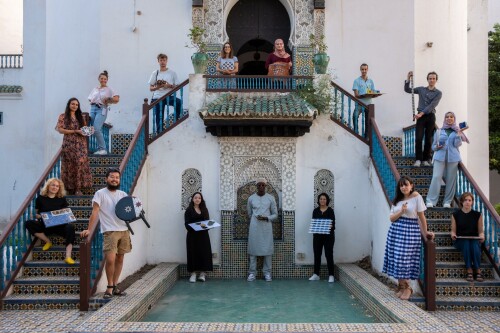
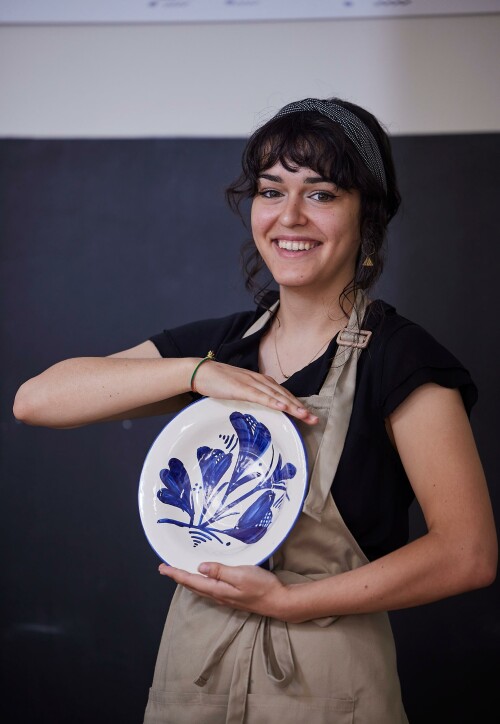
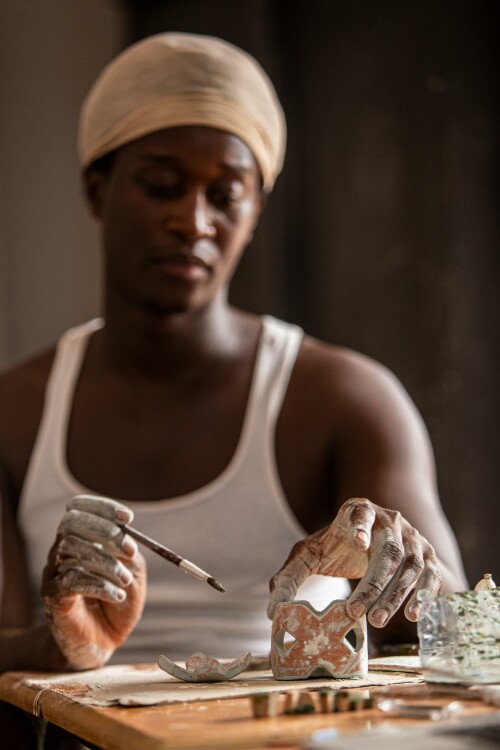
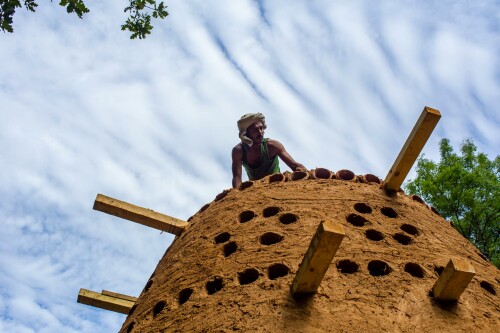
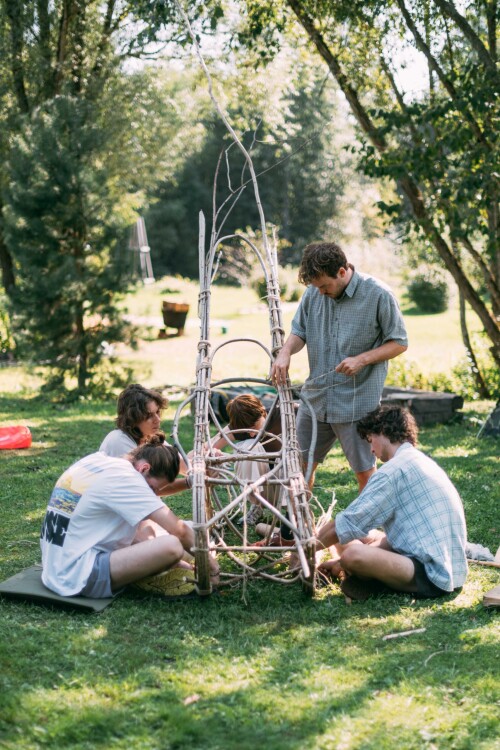
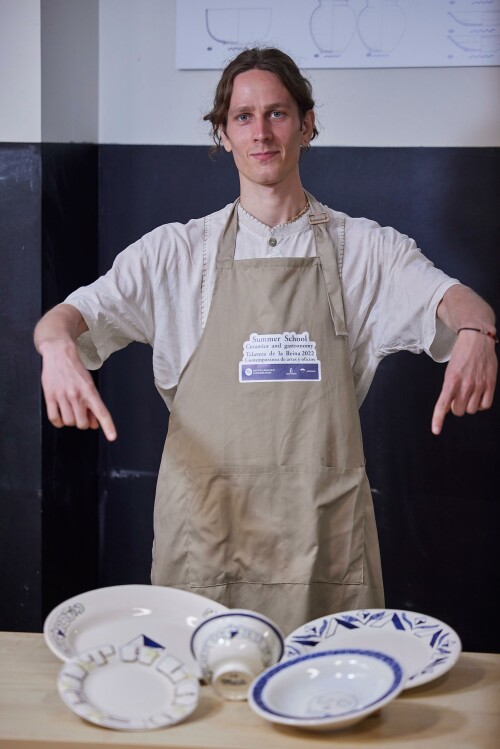
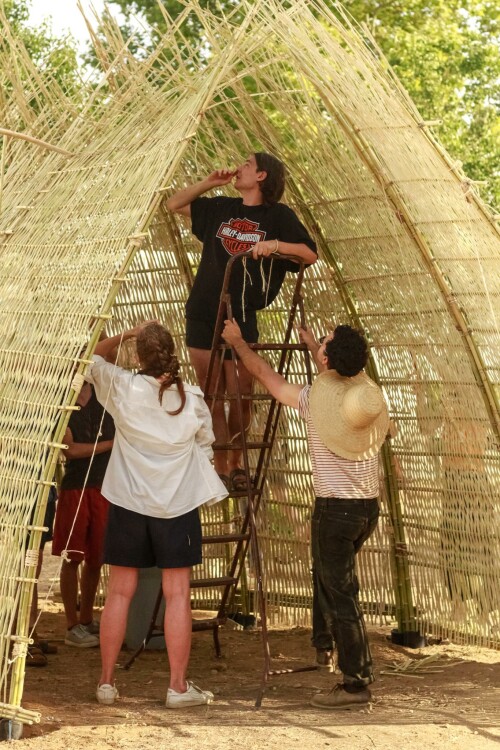
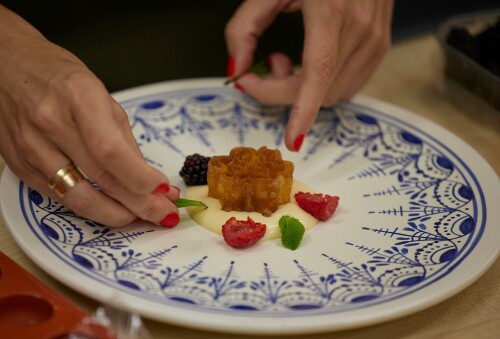
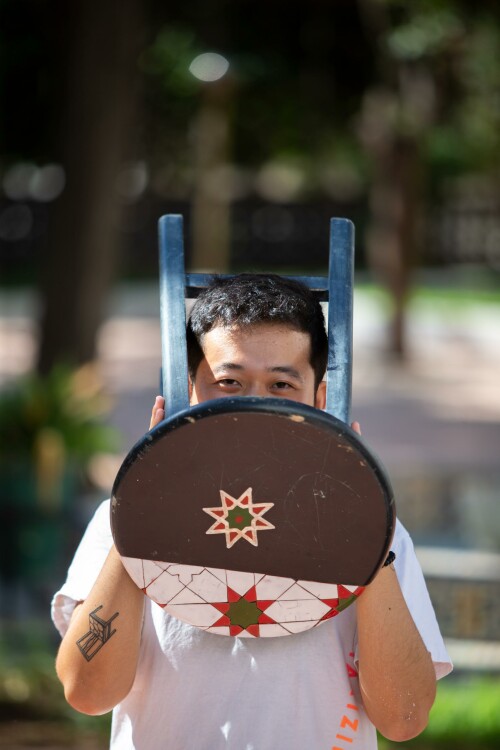
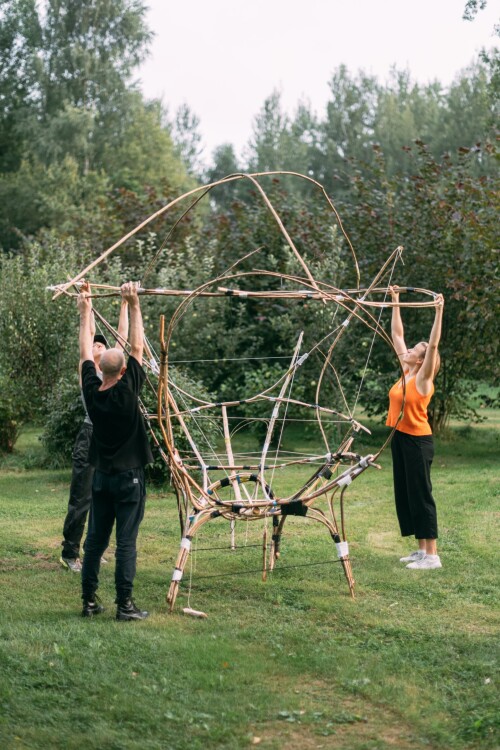
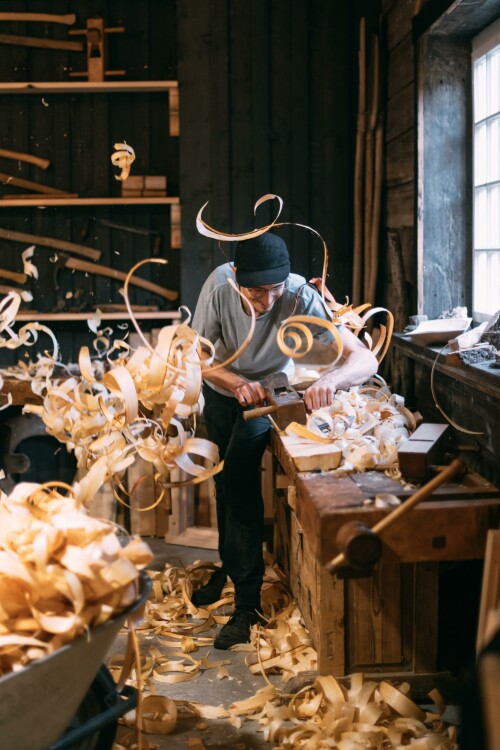
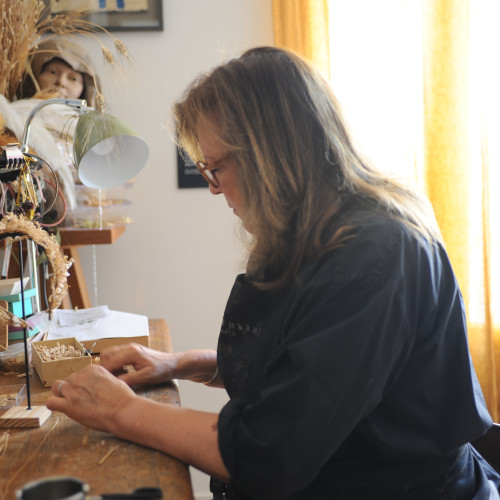
Homo Faber Biennial - 2024 - Artisan Portrait
May 2024
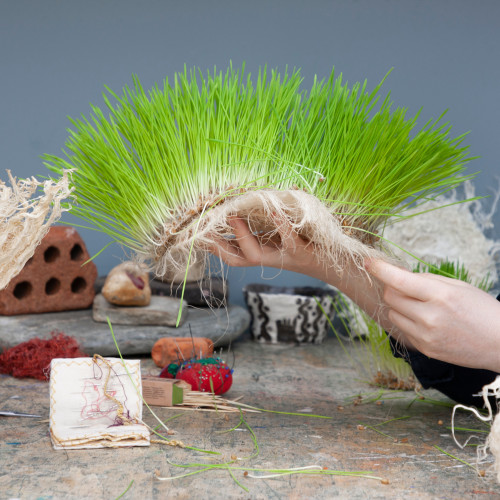
Homo Faber Biennial - 2024 - Artisan Portrait
May 2024
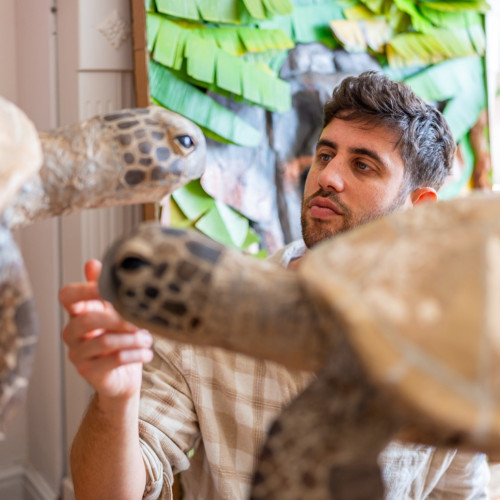
Homo Faber Biennial - 2024 - Artisan Portrait
May 2024